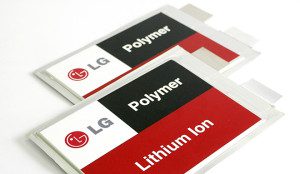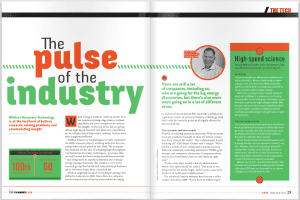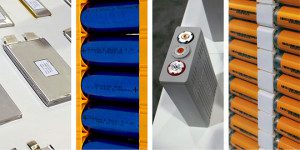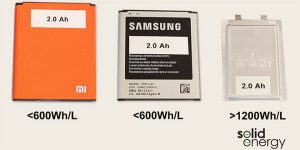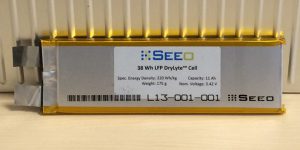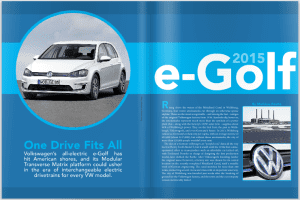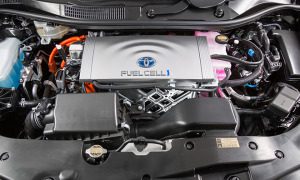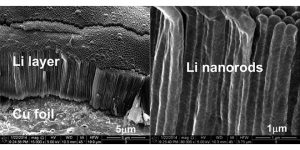Indianapolis is becoming something of an EV hotspot. The all-electric car sharing service BlueIndy opened for business this week. BlueIndy is owned by the Bolloré Group, a French conglomerate that operates car sharing services in several other cities, including the successful Autolib in Paris. The new car sharing service uses the Bluecar, a two-door hatchback… Read more »
Search Results Found For: "solid-state"
Lux Research: LG Chem threatens Panasonic’s position as world’s top EV battery supplier
Japanese giant Panasonic is by far the largest automotive batter supplier at the moment, with a 39% market share. According to a new report from Lux Research, it will probably hang onto that position, increasing its share to 51% as EV batteries grow to a $30-billion market by 2020. However, there’s a real possibility that… Read more »
Wildcat Discovery Technology creates new experiments to accelerate battery research
The pulse of the industry: Wildcat Discovery Technology is at the forefront of battery research, solving problems and accumulating insight. When Charged wants to catch up on the newest trends in cutting-edge battery technology, there are a few companies we turn to for insight. At the top of the list is a group whose high-speed… Read more »
Chemists discover key reaction in sodium- oxygen batteries
Chemists at Canada’s University of Waterloo have described a key mediation pathway that explains why sodium-oxygen batteries are more energy-efficient compared with their lithium-oxygen counterparts. “Our new understanding brings together a lot of different, disconnected bits of a puzzle that have allowed us to assemble the full picture,” says Professor Linda Nazar. “These findings will… Read more »
Small businesses score DOE funding for EV technology R&D
The DOE has selected 162 projects to receive $26.6 million in the 2015 Small Business Innovation Research and Small Business Technology Transfer (SBIR/STTR) awards. About 16 of these are vehicle-related, encompassing such technologies as batteries, power electronics and hydrogen fuel cells. Under the SBIR and STTR programs, federal agencies with large R&D budgets set aside… Read more »
SolidEnergy hopes to double EV battery range by 2017
SolidEnergy, an MIT spin-out company commercializing solid electrolyte technology, plans to release a 20 Ah EV battery in 2017, which it says will offer more than two times the range of current Li-ion batteries. The core of SolidEnergy’s technology is a Solid Polymer Ionic Liquid (SPIL) electrolyte, which enables the use of an ultra-thin lithium… Read more »
Advanced Battery Consortium awards funds to Seeo to test solid polymer battery modules
The US Advanced Battery Consortium (USABC) has awarded a $299,000 contract to Seeo Inc. of Hayward, California. The nine-month technology assessment program will focus on testing of Seeo’s elevated-operating-temperature solid polymer battery modules. Under the contract, Seeo will deliver its DryLyte battery modules to USABC for testing and third-party validation. These modules are based on… Read more »
2015 VW e-Golf ushers in an era of interchangeable drivetrains for every Volkswagen model
Rising above the waters of the Mittelland Canal in Wolfsburg, Germany, four iconic smokestacks cut through an otherwise sparse skyline. These are the most recognizable – and among the last – vestiges of the original Volkswagen factory from 1938. Symbolically, however, the smokestacks represent much more than the symbols of a power plant that –… Read more »
Toyota opens up its fuel cell patents; BMW will also research FCVs
Taking a page from Tesla’s book, Toyota plans to make some 5,680 patents on fuel cell technologies available royalty-free. The motivation appears to be much the same – just as Tesla hopes to encourage other automakers to produce battery EVs, Toyota wants to “open the door to the hydrogen future” and “spur development and introduction… Read more »
Researchers develop dendrite-free lithium films, an important step toward lithium metal anodes
There’s a lot of interest in using lithium metal as an anode material, because of its theoretical high capacity of 3,860 mAh g−1 (around ten times that of the graphite anodes used in typical Li-ion batteries). However, it doesn’t measure up in terms of cycle life and safety requirements, and one reason is the formation of… Read more »





